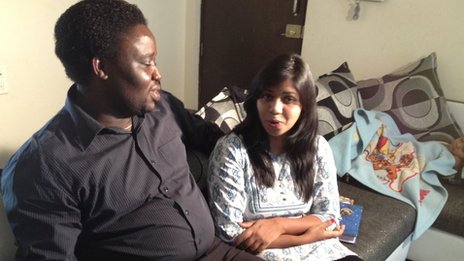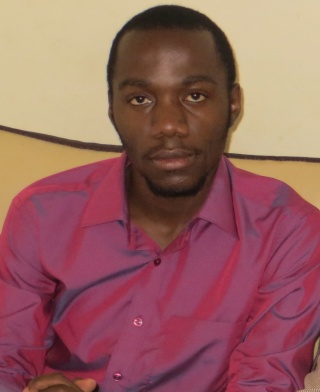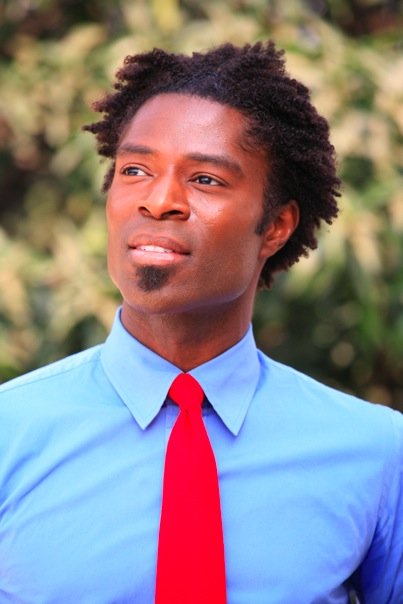Racism in India against Black people
| Indian Society is obsessed with white skin and it could be because of colonisation from British Empire that Indians want to look like their former master. If we look in Indian society the darker colour of skin the person is then more likely the person to be treated as a lower class in Indian society that it's colonial mentally that Britain left for Indians to discriminate among themselves. However, today India is considered one of future economic power in world and it has high advance education institutions included IT institutions that it's attracting lot of African students to study computer Science in India and also it's attracting African immigrants to buy cheap goods to send back to Africa. It means Africans are contributing for development of Indian economy too. Then why some Indians are treating blacks or Africans inferior in contrast to them just because of their colour of skin? Let follow some stories about Black people in India. African married an Indian. Nigerian Sambo Davis is married to an Indian woman and lives in Mumbai. All his documents are valid, but he was arrested by the police recently on suspicion of being a drug dealer. He and 30 other black Africans were detained for hours before they were let off with an apology. But the following day, Mr Davis said that he was shocked to read in local newspapers that they were "arrested for drug peddling". "The police treat us Africans like dogs," Davis says.
Mr Davis claims he often faces discrimination when he goes to restaurants or when he tries to rent an apartment in gated middle class communities. But he is nevertheless one of the lucky ones. He found a decent flat to rent, thanks to his Indian wife. But his fellow countrymen, he says, still face discrimination: "When they go to rent flats in a normal building they are told - 'you are a black man, you are Nigerian, and you are not wanted'. This is racism." Against such a background of obvious prejudice, Sheeba Rani married Sambo Davis four years ago and the couple have two children. Mrs Davis says her parents are tolerant Christians and they blessed them because they thought the marriage was God's wish. But, she says, she has been excluded by many friends, relatives and society since her marriage. Mrs Davis is "embarrassed and ashamed" by the behaviour of the Indian people towards black Africans. "When I used to go to a mall or if I walked with him, I always wanted him to hold my hand. But when people saw me with him, they thought I was from a bad family or even a prostitute." Earlier, she did not understand why black people were being looked down upon, but now she says she does. "Because our society is obsessed with white skin. If I had married a white man, I would have gained more friends and society's approval too." Mr Davis believes that the discrimination is solely "because I am a black man". "It's because I am from Africa, I am a Nigerian. I think Indians see us as inferior." We look after Indians in our countries. They have become rich there. All we want here is for Indians to understand we are not drug dealers. We are not violent. We are just like them." African students in Indian Twenty-three-year-old Richie Ronsard left his home in the Congo two years ago to fulfil his childhood dream of obtaining a degree from an established institute in the India. The reality check was not long in coming. "I arrived in this city with a lot of expectations. India has a very positive reputation in my country. I was sure that this was going to change my life, but instead I soon learnt that the image of the country outside far surpassed the reality I faced once I was here," Ronsard adding he has been treated like a third class citizen from day one. "Wherever I go out in public I feel out of place. People stare at me all the time. They call me names like 'kalu' and laugh at me. One day in the metro a small child came running to me and started shouting that word at me and pulling my shirt. His mother stood there looking at him without stopping him.
I couldn't say or do anything because it was just a child, but inside I felt embarrassed and even angry. Is this how your children are being educated," asked Ronsard, who has political ambitions and is working toward a masters in PPE (Politics, Philosophy and Economy). The stereotyping of Africans, especially Nigerians, in India as drug dealers has in some part affected how most Africans are treated in the national capital and elsewhere. This puts them under the scanner of the police and often intrudes upon their rights and privacy. "At least twice a week during the first year I was being visited by the local cops in what they referred to as a general check. I wonder if that is also what happens to non-Africans here," Ronsard stated. However, despite the growing interest by foreigners in Indian educational institutes, especially universities, little has been done to ensure their wellbeing by either the state or the educational representatives. It is not just Ronsard, but many other African students in the capital share his story. Fredrick Kaitale is a 20-year-old from Uganda studying for his Bachelors in Business Management in. For him, who has met and dealt with the large Indian community in his country, being seen as different in India came as a big shock. "I am proud to be black, so I don't mind being called "Kalu", but it does feel weird when I am stared at continuously. Every day I meet other Africans who have been victims of racism ill-treated not just by the people on the street but also by the authorities, who turn a blind eye to what is happening in front of them," Kaitale said. Additionally, getting decent living accommodation is a major task for African students who come to India. Many of them are turned away at the doorstep by potential landlords as soon as they see that the students are black. Valid reasons are not given, but it is evident from the manner that they are turned away. Omongin Emmanuel spent a number of months trying to find a flat to rent in a decent neighbourhood, but kept getting turned away. "The brokers kept getting back to me saying that the landlords did not want to rent out to Africans. Apparently, most of them believe that we indulge in illegal activities. They would come up with excuses like government regulations, said the 25-year-old Ugandan who is studying for a Masters in Public Relations and Event Management. "My father is a diplomat and even with his help, it took me very long to get a place to stay. Despite my connections, it took me so long, so what happens to the normal, unconnected African who is looking for a roof over his head," Emmanuel wondered. For many, the problems do not end even after getting a place to stay. "My neighbour has done everything from calling the police to complain about made up noises he was hearing to cutting my water supply. It is a constant battle to be normal here." says Ronsard. "The government really needs to work actively towards improving relations between India and Africa. This can be done by putting laws against racism in place. People should be scared of the legal repercussions of racist remarks and bullying. Also, the media needs to have more programs that focus on black Africa so that we don't seem so alien when we get here," Emmanuel Onaputa, a second year BBA student from the Congo, suggested. Black American in India Dr. Diepiriye Kuku-Siemons did his PhD in Dehli School of Economic. he wrote an article to Colombo telegraph about his experience of racism in India that it was titled 'India Is Racist, And Happy About It' Once I stood gazing at the giraffes at the Lucknow Zoo only to turn and see 50-odd families gawking at me rather than the exhibit. Parents abruptly withdrew infants that inquisitively wandered towards me. I felt like an exotic African creature-cum-spectacle, stirring fear and awe. Even my attempts to beguile the public through simple greetings or smiles are often not reciprocated. Instead, the look of wonder swells as if this were all part of the act and we were all playing our parts.
Discrimination in Delhi surpasses the denial of courtesy. I have been denied visas, apartments, entrance to discos, attentiveness, kindness and the benefit of doubt. Further, the lack of neighbourliness exceeds what locals describe as normal for a capital already known for its coldness. My partner is white and I am black, facts of which the Indian public reminds us daily. Bank associates have denied me a chair, while falling over to please my white friend. Mall shop attendants have denied me attentiveness, while mobbing my partner. Who knows what else is more quietly denied? "An African has come," a guard announced over the intercom as I showed up. Whites are afforded the luxury of their own names, but this careful attention to my presence was not new. ATM guards stand and salute my white friend, while one guard actually asked me why I had come to the bank machine as if I might have said that I was taking over his shift. This is a question! How so many people can be hateful towards Black people without so much care about the conscience? Is it takes a lot of effort to be hateful towards people than it is much easier to show love toward others human being without looking in their colour of Skin. When it comes to fair treatment, let's just be honest, Blacks or Africans are the most discriminated against demographic in the world, for that matter. For whatever reason, nobody has a problem discriminating against Black people. |
























No comments:
Post a Comment